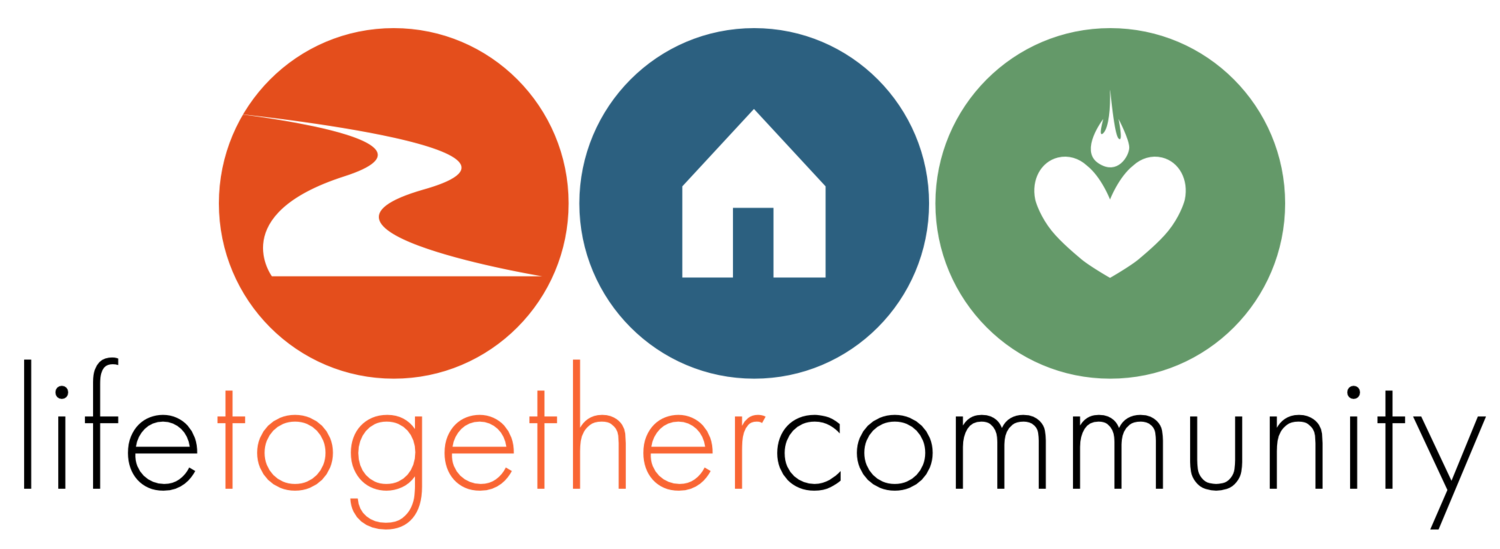OVERVIEW OF TRAINING
Life Together’s January Third Friday Spiritual Activism Training focused on the theme of vocation. It was led by the Rev. John de Beer (see below). The goals of this training for Life Together Fellows were as follows:
a.) Learn to use a biblically based model of vocation to articulate and strengthen Fellows' own particular call at this time in their lives.
b.) Experience themselves as known, cherished and claimed by the Creator of all.
c.) Receive as gifts their own innate abilities, those things that they do well and love doing.
d.) Explore their passionate connection with the world as a key to participation in God’s mission of justice and reconciliation.
e.) Develop an understanding of maturity as commitment, as they discover the freedom that comes from doing what they love in service of their deep desires.
f.) Strengthen their sense of partnership with God.
g.) Learn to support others to strengthen their own sense of call.
Following morning worship, John began the day by defining vocation as that which calls us into purpose and meaning. Instead of fitting into the present social framework, vocation involves trusting that the Spirit is leading us to reshape unjust systems and structures that sadly characterize our world. To help Fellows explore their own sense of vocation, John presented his own story of being called to become an Anglican priest in South Africa and his subsequent ministry within The Episcopal Church. He then offered a bridge diagram that provides a useful model for discernment. One side of the bridge represents an individual's various gifts and passions. The other side represents the needs of the world. The road connecting the two signifies one's commitment and surrender to God, and the road is also suspended by community, which can help support us and shine light on our gifts. Finally, and most importantly, the ground supporting the bridge symbolizes the love of God. Fellows had the opportunity to fill out their own bridge diagrams and then reflect on them with their peers.
In the afternoon, Fellows went on partnered walks to reflect together on the day so far. After this, John invited them to share stories they knew of people who demonstrated an extraordinary commitment to an inner call. Following this, he reflected on what it means to have one's heart captivated, and how to deal with competing commitments and outside resistances. Fellows were then given time to journal about where they felt they were in their own journey of discernment. Participants shared insights and questions, and had a chance to discuss particular interests (e.g., ordained ministry, parenting, working abroad, etc.), which could lead to the formation of Life Together affinity groups. Finally, Fellows gathered in small groups to pray for grace to discern and commit to their vocations.
RELATIONSHIP TO LEADERSHIP
"Just as we are all meant to be contemplatives and to hear the voice of God in our lives, we are all meant to answer God’s call to be His partners in transfiguring the world. This calling, this encounter with God, is always to send us into the midst of human suffering . . . the Spirit is given; the divine is encountered, for the sake of others." -Desmond Tutu, God Has a Dream, p. 109
John de Beer's training on vocation serves a vital purpose in Life Together's goal to raise up prayerful and prophetic leaders, to be God's partners in changing the world. In the conviction that our ways of being and acting can and will shape our lives and the world around us, Life Together Fellows are invited to ask themselves questions that take them deeper into awareness, narrative, relationship, and action. Throughout the day, they had the chance to do so as they reflected on how God might be calling them in life (not merely in terms of career). Exercising the contemplative and communal practices we share is crucial in this regard. It is equally important that, as John pointed out in his definition of vocation, Fellows challenge themselves to consider the prophetic implications of their call. In all of these ways they are invited to continue developing themselves as leaders seeking inner and outer transformation.
REFLECTION QUESTIONS
In what ways is your vocation promoting the Jesus Way and working against the Empire Way?
How can you continue exploring your sense of vocation? With whom will you do so?
What can you be doing now to continue building the bridge between your God-given gifts and the world's needs?
TRAINER BIOGRAPHY
John de Beer, D.Min (Congregational Development), MA (Theol), B.Sc.(Math and Physics) has a lifetime of training and consulting in adult faith formation. His commitment to the ministry of the laity has been a constant theme in his own vocation. For decades John has been a key player in pioneering adult formation programs, most notably the Education for Ministry Program at the University of the South where he was on staff for eight years, and at St. Martin’s-in-the-Field in MD, where he created the KLESIS curriculum with Sarah Dylan Breuer and Tricia de Beer. Currently he is Rector of St. Mark’s, Burlington and is active in the Diocese of Massachusetts programs, including Life Together, Making Excellent Disciples (a mentoring program for new clergy), and the Leadership Development Initiative. He is the co-author of The Art of Theological Reflection, Crossroad, New York, 1994 (with Patricia O'Connell Killen).
